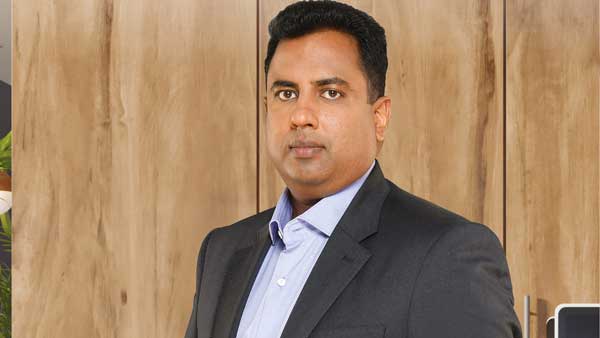INNOVATION

Iterative improvement
Rasika Karunatilake
Innovation is the eternal pursuit of improvement. This can be in terms of introducing new products, services or processes, or incremental improvements towards the next stage of evolution.
In this digital age, innovations in the tech industry drive those in other sectors, muses Rasika Karunatilake. “At the apex of innovation in tech are firms that produce proprietary solutions,” he adds, pointing to Salesforce’s CRM platform as a notable example.
Karunatilake elaborates: “This has transformed how businesses interact with customers. Through an iterative process, Salesforce developed a proprietary solution that enables companies to integrate technology into their processes seamlessly. This has resulted in businesses improving their operations, customer experience and ultimately, bottom lines.”
For businesses, the goal of innovation is to gain competitive advantages. This is because in today’s digital world, the tech and tools required to achieve iterative and integrative innovation are becoming more accessible, due to accelerated globalisation and the rapid pace of innovation across the tech industry.
To this end, Karunatilake believes there is no universal formula for companies to nurture and drive innovation.
“Each company’s context is different but some fundamentals are required – such as visionary leadership, and the business’ willingness to take risks, support bold changes, invest in the eternal pursuit of improvement, and work with a blend of iterative and integrative innovation practices to achieve a breakthrough or competitive advantage,” he explains.
In addition, he stresses that the ‘why?’ behind innovation should always remain clear. Is it to solve a customer issue, optimise a business process or create a breakthrough that can revolutionise an industry?
It’s critical to establish the purpose driving innovation, which is the responsibility of leadership, ensuring that all teams are aligned with this.
Karunatilake believes that “another important enabler of innovation is the intake of talent with new skills, ideas and experiences – talent that offers different perspectives in areas in need of change or improvement.”
“We’re seeing an increasing demand for professionals with tech backgrounds across different industries because the current trend is integrative innovation leading to iterative innovation,” he points out.
Speaking on the context of innovation in Sri Lankan corporates, Karunatilake stresses: “It is important now more than ever for Sri Lankan businesses to innovate. The world is becoming a smaller place and more competitive. And with increasing access to tech, the playing field has been levelled.”
“Sri Lanka has ingenuity, which we can harness to capitalise on emerging technology. This is the case especially for service exports where the global landscape for service providers is rapidly evolving. Sri Lankan corporates should explore the use of tech to improve operations and output,” he urges.
Karunatilake continues: “Fostering a spirit of innovation and enhancing tech capabilities will enable Sri Lankan corporates to compete on a regional scale and diversify exports, which can lead to a net positive in terms of value creation and employment.”
He explains that innovation can take effect in stages and doesn’t need to follow a Big Bang approach.
“Many industries have been shaped through incremental innovation,” he notes, adding: “In the automobile industry for example, electric vehicles (EVs) aren’t new. The earliest such vehicles were conceptualised in the 1890s, and consistently improved through an iterative and integrative innovation process to make them viable products.”
Moreover, Karunatilake says that today’s electric cars are computers on wheels – they have integrated software to ensure that batteries and motors work together, to provide the best performance and connect to the outside world.
“Manufacturers such as Tesla constantly improve their cars by providing ‘over the air’ software updates by consistently iterating to ensure that products are safer and smarter. Therefore, we have to view every innovation as a step forward,” he concludes.


